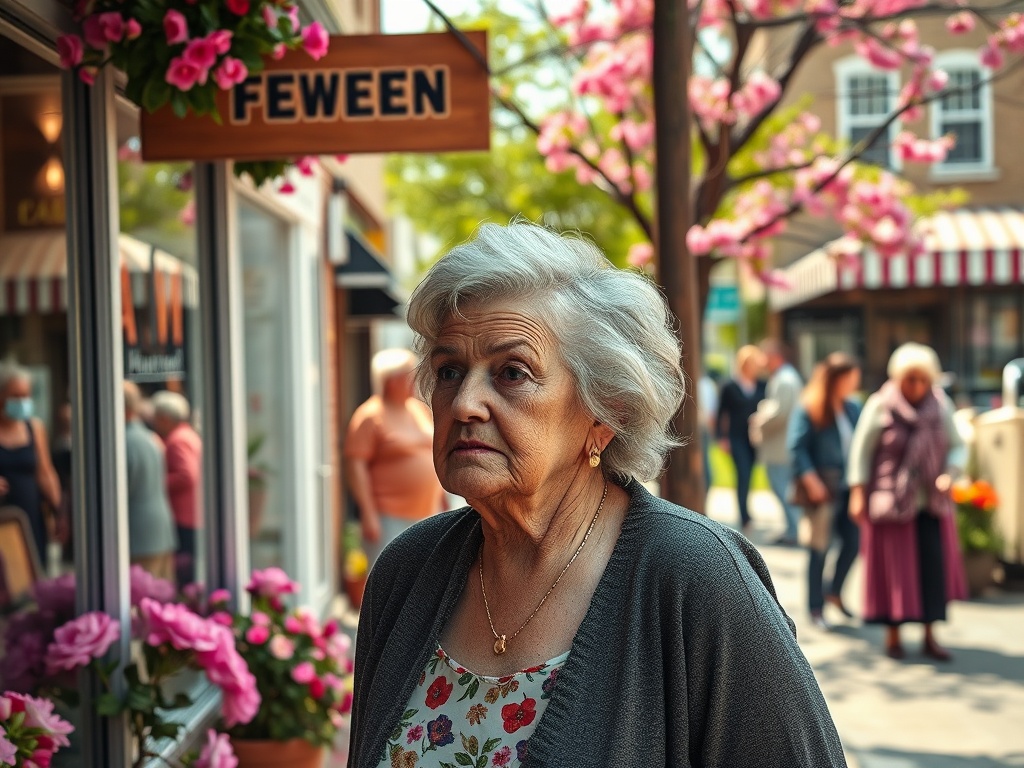Suzie Stokes: A Lifelong Passion for Hairdressing
From the tender age of five, Suzie Stokes has had a deep-seated love for hairstyling, often experimenting with various looks on friends and family. She fondly recalls, “I always knew I wanted to be a hairdresser ever since I was a little girl. I loved putting people’s hair up and making them look beautiful.” Now, at 65, despite battling arthritis in her hand, Suzie continues to follow her passion.
A mother of three and grandmother of four, Suzie shared with The i Paper that had she received her state pension at the expected age, she would have significantly reduced her working hours by now, as her health has been impacted by her job. Living in Milton Keynes, she works as a mobile hairdresser and was shocked to discover at 59 that she would not receive her state pension until she turned 66, rather than the anticipated 60. “It’s been a struggle,” she admitted. “I have arthritis in my right hand, and it’s becoming increasingly difficult to work at the same level as before.” However, she is looking forward to finally receiving her state pension in June this year, which will allow her to slow down a bit.
Affected by State Pension Inequality
Suzie is among an estimated 3.8 million women known as Waspi (Women Against State Pension Inequality), who have been adversely affected by significant changes to the state pension age. The Waspi campaigners argue that women born between 1950 and 1960 were not given adequate notice regarding the increase in their pension age and are advocating for compensation for the adverse effects on their lives.
A report by the Parliamentary and Health Service Ombudsman (PHSO) suggested compensation in March, estimating that between £1,000 and £2,950 could be awarded to women impacted by the failure to adequately inform them about changes to the state pension age. Despite this recommendation, the Government has declined to offer any compensation. In response, campaigners have initiated legal action and launched a CrowdJustice campaign aimed at funding this effort, initially setting a target of £75,000, which has now surpassed £138,000.
Personal Challenges and Support
Suzie shares her home with her fiancé, Lawrence Alexander, whom she has been engaged to for 15 years. She acknowledges that if it weren’t for his well-paying job, she would be “totally screwed.” “I started working at a hair salon when I was just 12 years old, taking on a Saturday job,” she recounted. “By the time I was 16, I went to college to study hairdressing.” After qualifying, she worked in various salons, got married, and had children. Following her divorce in 2000, she met Lawrence four years later, and credits him with helping her manage financially.
Lawrence works for a healthcare company and is ten years younger than Suzie, meaning he still has another 11 years until he qualifies for his state pension. “I plan to continue working even beyond 66, as I can’t afford not to,” Suzie said. “But once I receive my state pension, I’ll finally have the freedom to reduce my hours and take things a bit easier.”
The Impact of Work on Health

While Suzie enjoys her work as a hairdresser, the demands have taken a toll on her health. With arthritis in her right hand and persistent back pain from long hours of standing, she finds it increasingly challenging to keep up. “When I first became a mobile hairdresser, I sometimes started at 4 am for weddings and could still be working until 10 pm,” she explained. “But my health has become a significant issue. I can’t do as much as I once did; my hands and back just won’t cooperate.”
Despite these challenges, Suzie is reluctant to give up her career entirely, as she has formed strong connections with her clients. Once she receives her state pension, she hopes to have the flexibility to choose her hours and take care of her health.
Financial Struggles and Future Aspirations
The COVID-19 pandemic hit her particularly hard, as hairdressers were among the first to be shut down during lockdowns, leading to a significant financial strain. “I expect that the first year of my state pension will go towards clearing the debts I accumulated during that time,” she noted.
Although Suzie supports the Labour Party and voted for the current Government, she feels disappointed by their refusal to compensate Waspi women. “While I understand the hesitance due to a black hole in public finances, I’m frustrated they haven’t at least considered revisiting the issue in the near future,” she said. “I stand by the Waspi campaign for legal action, and I wish them success in their fight.”
Angela Madden, chair of Waspi, stated, “As their circumstances change, many women make adjustments in their later working years. However, Suzie, and countless women like her, were denied the opportunity to make informed decisions.” She emphasized that the Department for Work and Pensions’ failure to effectively communicate changes to the women’s state pension age has left many in precarious employment, relying on family support to make ends meet. “Women born in the 1950s are not going away, and our fight for justice will continue,” she asserted.
A Government spokesperson responded, stating, “We accept the Ombudsman’s findings of maladministration and have apologized for the 28-month delay in notifying 1950s-born women. However, evidence shows that only one in four people recall receiving letters that they weren’t expecting, and by 2006, 90% of 1950s-born women were aware that the state pension age was changing. Earlier notifications would not have made a difference.”




